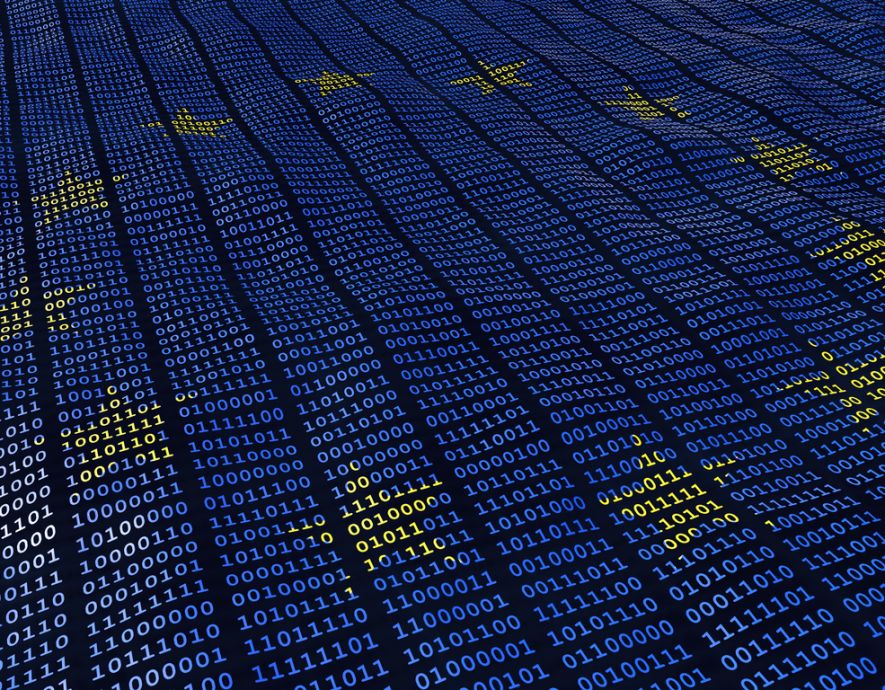
- Home
- Digital transformation
- Data at the Epicenter of Investigation
Data at the Epicenter of Investigation


(by Deveryware)
Data has become the black gold of the 21st century. There is a broad consensus on its new importance induced by the boom in digital technologies and connected objects, the number of which should be reach 1,000 billion by 2025, according to McKinsey Global Institute. The challenges brought about are summarized as the five Vs of big data: Volume, Velocity, Variety, Veracity, and Value.
The Inner Workings of Digital Evidence
This new situation has turned upside down the working methods of state-level law enforcement agencies and investigation services. “With the sudden rise of digital technologies, digital evidence has become the key to most criminal investigations. Data, metadata, transmission logs, and email content are often indispensable to gather hard and consistent evidence on a suspect. Digital documents have thus become an unavoidable part of our personal and professional lives: exchanges of emails, tracking of internet browsing, accounting software, digital diary, mobile phones, satellite geolocation. These diverse types of digital evidence are now at the heart of criminal investigations requiring searches not only on our national territory but also beyond.”
Myriam Quéméner, Advocate-General at the Court of Appeal of Paris.
Yet, despite the usefulness of data and metadata, there is great difficulty in gathering and retaining it. Investigators and intelligence services are indeed forced to wrestle with heterogeneous legal frameworks and regulations to fulfil their missions while criminals take no such precautions when resorting to anonymising technologies, cryptocurrencies, cloud-based systems, and encryption.
Therefore, it is no longer an option to work together with State services for the processing and analysis of data and metadata, as well as to discuss around the peculiarities and weaknesses of digital evidence. On the one hand, digital investigation must strive to preserve the evidence from loss and prevent the tampering or falsification of identification data. On the other hand, it is essential that investigators improve their mastery of methodology.
Towards Mastering Data
Intelligence and investigation actors in this age of big data require high-performance and smart analysis tools. “Nowadays it is hard for an investigator to synthesise quickly and efficiently large amounts of data. But data analysis tools are capable of processing and interpreting vast quantities of data and information flows almost in real time, as well as highlighting the most relevant elements by order of importance.”
Guillaume Kauffmann, Managing Director of Tracip
“These zettabytes of data will only be usable and intelligible for investigations and for predicting events through cutting-edge technologies and methods designed to collect, archive, and preserve that data in conditions that ensure the integrity of evidence.”
Colonel Isabelle LOPEZ, Head of C3N
Digital investigation technologies must also adapt and evolve based on the cloud, the growing diversification and increase of data, and crime that has become more specialised: network security breach, data leak, internal threat, malware, ransomware, intellectual property, cybersecurity, etc. As a result, digital investigation has become hyperscalable in an attempt to rise up to new challenges through a variety of tools aiming to strengthen already existing digital investigation devices.
Federative Platforms
Reaching ever higher, the time has come for the development of smart, collaborative, and federative platforms. Through automated data compilation, value added processing and analysis, and correlation between elements, French and European manufacturers have rolled up their sleeves to build truly disruptive platforms. One example is DeveryAnalytics, a Deveryware platform designed for investigation capable of comparing, matching, and correlating data of all types. Be it minutes of a hearing, phone call transcripts, GPS coordinates, or data obtained by decision of a judicial authority, the platform systematically combs through the topics. The platforms starts by collecting and integrating heterogeneous data; then, its advanced statistical analysis establishes patterns and detects changes in habits or abrupt shifts in behaviours. Event analysis will then put each behaviour back in its temporal and spatial context.
Substantial Interests
Processing and exploitation of data are at the heart of the fight against infringement on individual rights, organised crime, terrorist attacks, fraud, and offences economic and financial infringement and are key to ensuring cybersecurity or maintaining public order. These collaborative, smart, and interoperable platforms enable investigators to save time or explore new leads, make informed decisions, and decompartmentalise and share information. They allow to extract and capitalise on the value of that data to defend the truth and predict criminal actions, thus ensuring a safer world for tomorrow.
Despite the undeniable value of such platforms, success can only be reached through stronger co-operation between State, industrial, European, and international stakeholders provided with technical, lawful, ethical, and financial frameworks that are transparent and consistent.
“The untapped potential of police data bases waiting to be plugged to AI is tantalising,” points outs Ruth Morgan, forensic science expert at University College London. However, when algorithms are used, it is not always possible to explain the decision-making process to the court. Either because the technology is proprietary and the companies owning it refuse to unveil its secrets, or the system is so twisted that it is almost impossible to pick up the red thread. “This kind of questioning hampers the wider adoption of these technologies and sets off both critics and citizens,” comments Ruth Morgan.
The challenges to overcome are technical, legal, cultural, and political. If this is truly the age of technological sovereignty, strategic outlook, and enhanced cooperation between public and private stakeholders for consistent security are much needed lest we deprive our intelligence and investigation agencies of “a great opportunity” and make them “lag behind partner powers”.
Yet, in all these partnerships and coproduction, individuals will remain the epicentre. “Every single tool developed by our experts serves only to complement the investigator or agent’s intuition. Human intelligence is allowed to focus its attention where it is the most effective, ergo in interpreting data. The tool is thus centred on the end user,” adds Xavier Houillon, Deputy Managing Director at OAK Branch.
Europe is Key to the Next Level
Field experience has consistently demonstrated that the planning and organisation of many cyberattacks originate from outside the French territory. Chasing criminals beyond our borders requires continued cooperation with Europol, Eurojust, or even Interpol and the scaling up of efficient data sharing through interoperable tools and a harmonised legal framework in Europe and internationally. Despite the progress made with the European Investigation Directive, E-evidence should aim even further.
Preparing for the Future
It is high time to act and prepare the future of investigation by writing the chapter of predictive powers for the prevention and anticipation of future criminal acts. “These tools are useful and essential in our hyperconnected society, but they must be engineered and used for the greater good. The creation of smart and collaborative platforms that comply with French and European laws and regulations in force and are able to find a missing child faster or stop the next terrorist attack is part of this predictive ethical and responsible approach,” emphasises Alain Vernadat, Managing Director of Deveryware.
Human beings have the power to create a safer world through data mastering and processing, as well as through nurturing information exchanges and cooperation within a harmonised legal framework that will be strengthened by these powerful technologies, which bring about a new dimension and have liberty and security work hand in hand. Yet, this requires the cooperation of us all on ethical developments and relationships based on trust, which are the pillars of the future.
The common goal for tomorrow’s world seems then perfectly clear: “Committing to a safer world through innovation, engagement, and ethics,” concludes Alain Vernadat.


For more information: https://deveryware.com/la-data-au-coeur-de-lenquete/
the newsletter
the newsletter



